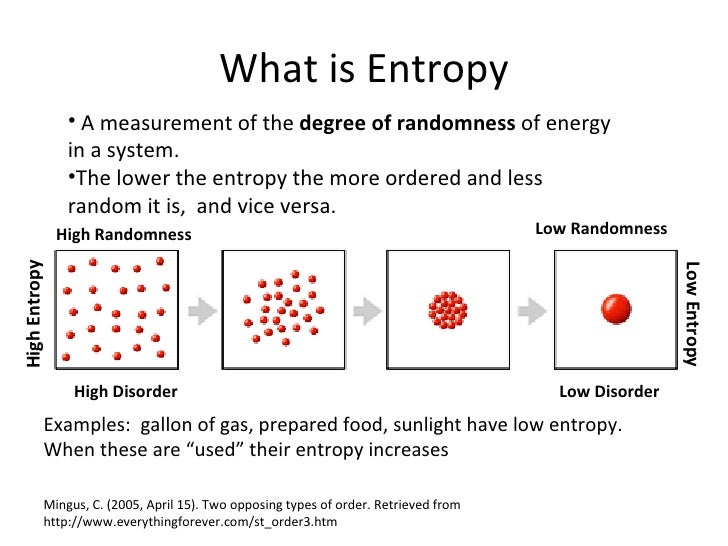Harvard psychologist Steven Pinker reflects on the implications of its more broadly stated principle, entropy increases over time [bold added]:
The Second Law is acknowledged in everyday life in sayings such as “Things fall apart,” “You can’t unscramble an egg,” and “What can go wrong will go wrong.”....I believe that it defines the ultimate purpose of life, mind and striving: to deploy energy and information to fight back the tide of entropy and carve out refuges of beneficial order.Professor Pinker's short essay is worth reading because of its perspective toward life's vicissitudes. He ends as follows:
An underappreciation of the Second Law lures people into seeing every unsolved social problem as a sign that the world is being driven off a cliff. But it is in the very nature of the universe that life has problems. It’s better to figure out how to solve them, by applying information and energy to expand our niche of life-enhancing order, than to start a conflagration and hope for the best.What started as a nice thought piece on the Second Law and bringing order to a chaotic universe veers off into the nature of drastic change, even anarchist politics. Why introduce the notion of a volitional, not an accidental universe-caused conflagration at the end?
Sometimes organized systems can be so flawed that it would be better to start over rather than try to fix them, whether one's talking about legacy accounting software, termite-ridden homes, or the SF-Oakland Bay Bridge. Certainly one should not "hope for the best" when undertaking the task of occupying a foreign country or replacing a national health system.
But back to the Second Law.
Matter doesn’t spontaneously arrange itself into shelter or clothing, and living things don’t jump onto our plates to become our food. What needs to be explained is not poverty but wealth.I like to think about creating wealth---most of the time my own---rather than redistributing others' to help the poor. On that I heartily agree.

No comments:
Post a Comment